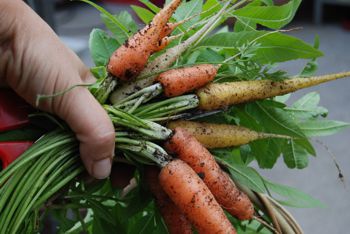
How high are Food Prices going to go?
How high are Food Prices going to go?
The cost of food is increasing and contributing to the high levels of inflation that has been branded as "the cost of living crisis".
Inflation means that the general price level of goods and services is rising, resulting in a reduction in the purchasing power of our currency. I.e. the value of our money is decreasing.
When we experience a period of high inflation it is important to understand where within a typical basket of goods this is being generated.

As you can see in the above chart, food and beverages comprise approximately 15% of the overall CPI calculation, in 3rd position proportionally, behind housing and transportation.
Currently, as of August 2022, food price inflation sits at 9.8% which is slightly higher than the total CPI figure of 9.4%.

Food is an absolute day to day necessity, and for those households who are facing any degree of financial hardship, increases in the price of food are felt far more significantly as food makes up a larger proportion of their average weekly expenditure.
Unlike certain other categories such as recreation and culture, food is a daily necessity and struggling households may have already made changes to their eating habits and brand selections that mean there is little room to adapt their purchasing behaviour to mitigate the price inflation.
Food prices have been increasing for years and it’s becoming more difficult for people to keep their own personal food budgets under control. In fact, Brits spend more than 10% of their monthly income on groceries; an amount which continues to rise due to inflation - the average UK household now spends £300 per month on groceries and £145 per month on food at restaurants and takeaways.
The Costs of Producing Food
The price of food is rising in part because the cost of producing food is also rising. The cost of labour (due in part to a drop in seasonal workers coming from abroad), fuel, fertilizer and the cost of equipment to produce food has increased in recent years. In addition to these rising costs, the impact of climate change on the growing seasons of commodities like corn, wheat and soy beans has also raised the cost of food. All of these factors have contributed to higher food costs, which have then trickled down to the consumer in the form of higher prices at the supermarkets and other grocery stores.
Another factor that has contributed to rising food costs is the growing number of people who are purchasing organic and/or ethically sourced food. Many consumers have expressed concern over the amount of pesticides being used in the production of food. This has led to an increase in demand for organic food, which, in turn, has led to a shortage of supply.
Finally, there is currently a push towards achieving carbon net zero, and this is exacerbating the situation for farms in terms of indirect increase in energy input costs and restrictions on the use of fertilizer reducing food production.
Are food prices going to continue increasing?
There are a number of different reasons why food prices may continue to escalate:
- Continued increases in the cost of fertilizer as a key food production input. Fertilizer prices increased by 11% from June to July this year, and is currently 158% up year on year.

- The decrease in seasonal labour has resulted in a reduction in output at many UK farms, which reduces overall food supply and is an upward price pressure.
- Overall inflation (and the anticipation of it continuing) can start to spiral as it gets built into annual pay reviews and trade union wage increase negotiations. Higher wages without an increase in supply result in higher prices.
- The risk of the escalation of the war in Ukraine - war brings with it many uncertainties, but Ukraine is one of the breadbaskets of Europe, and the conflict could reduce food and fertilizer exports from the region, reducing food supply; an upward price pressure.
- The continued breakdown of the Global economy - the deterioration of the relationships between key economies such as the USA and China, may have the result of destabilizing the entire global trade system. We in the western world have for decades benefitted from the current set-up - cheaper goods imported from abroad, putting a downward pressure on prices. If this deteriorates further we may start to see this unravel, pushing overall prices rapidly upwards. Whilst this may not directly impact food, the indirect impact is likely to be very significant.
- The impact of droughts in 2022. This year the climate/weather patterns have been particularly challenging for a number of countries. For example, Northern Italy is facing its worst drought in 70 years, and over 43% of US states are currently experiencing droughts. A recent UN report says drought frequency and duration has increased by approximate 30% since 2000 - if this trend continues it could significantly impact food supply.
How can households reduce the impact of rising Food Costs?
The best way to combat rising food costs is to shop carefully for the products that you purchase most often. You can save a significant amount of money by taking the time to compare prices between different brands and different stores. You can also save significant amounts of money by growing your own fruits and veggies, and doing as much meal prep as possible. The price of food is expected to rise even more in the coming months and years. This means that careful budgeting, strategic shopping and bulk buying ambient long lasting foods will become even more important as time goes on. The best way to combat rising food costs is to pay close attention to prices and to shop wisely.
Suggested Articles
Mainstream news versus YouTube & Social Media
There is a sense that society has become increasingly divided in recent years. Whether it is traditional class divide...
Pandemic Implications
The sustained Covid-19 pandemic, described by some as a ‘black swan event’ has impacted the world in a huge number of...
Homegrown Wisdom: The Surprising Connection Between Self-Sufficiency and Ambient Food Storage
In a world where convenience and immediate gratification reign supreme, it's easy to take our readily available food ...




